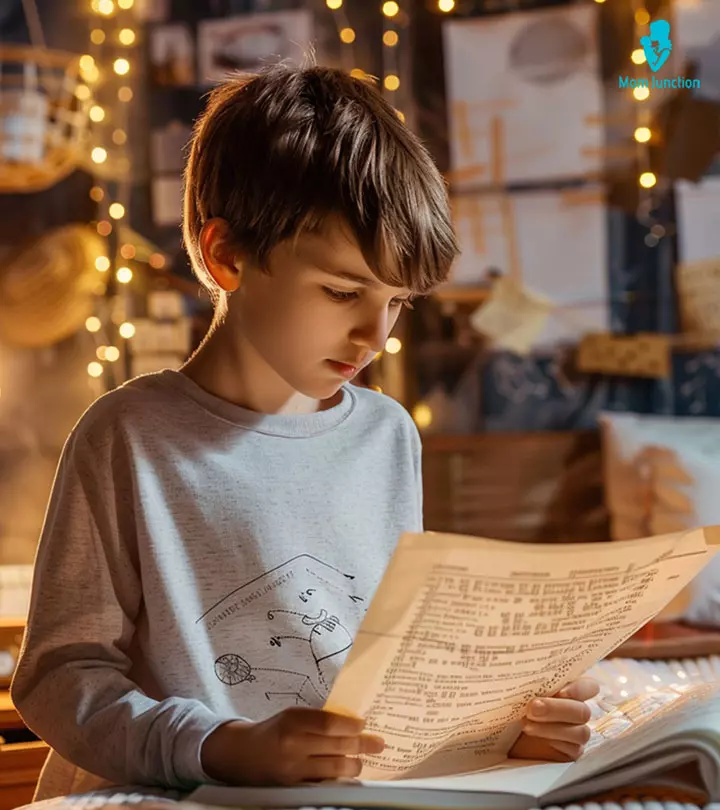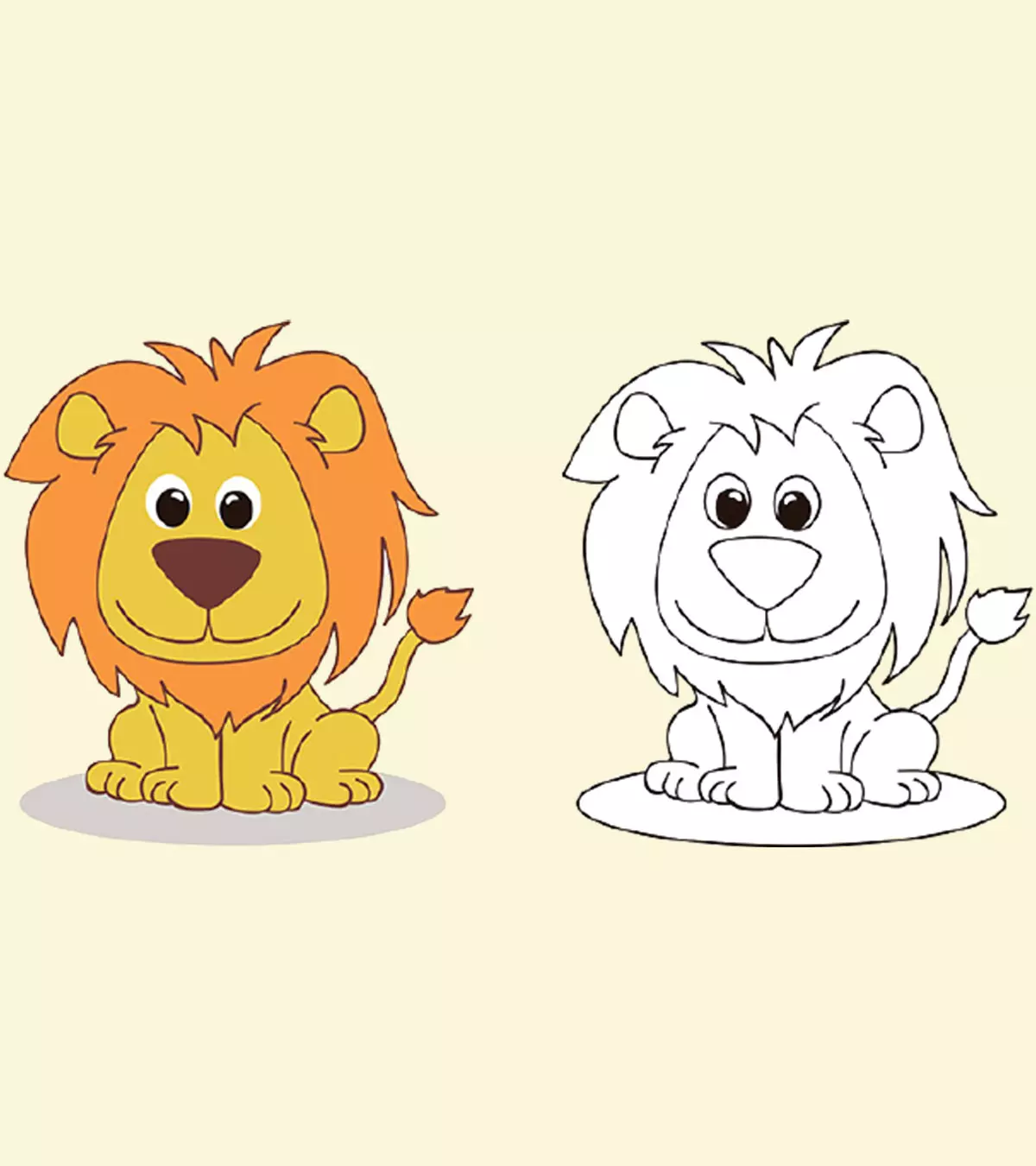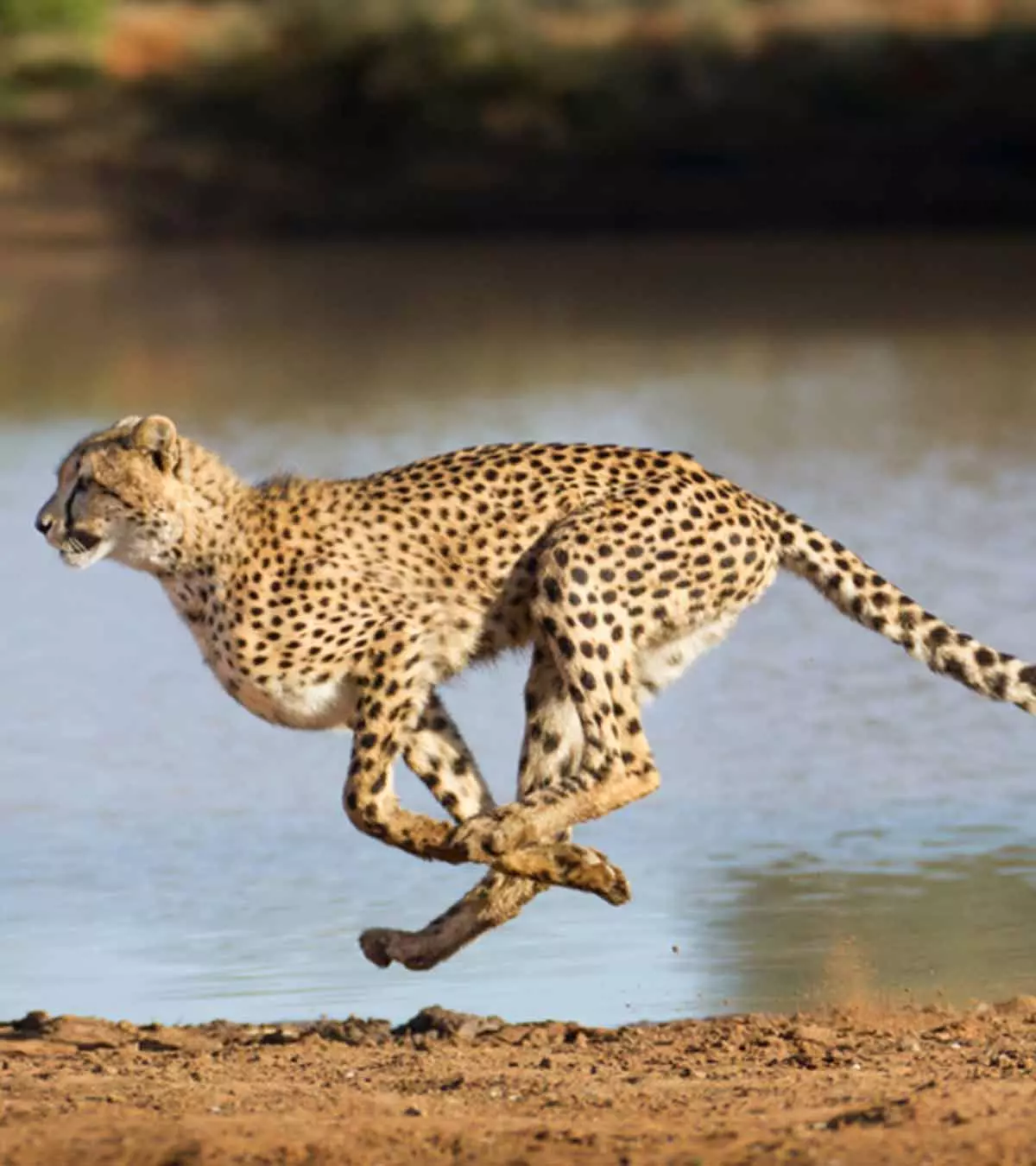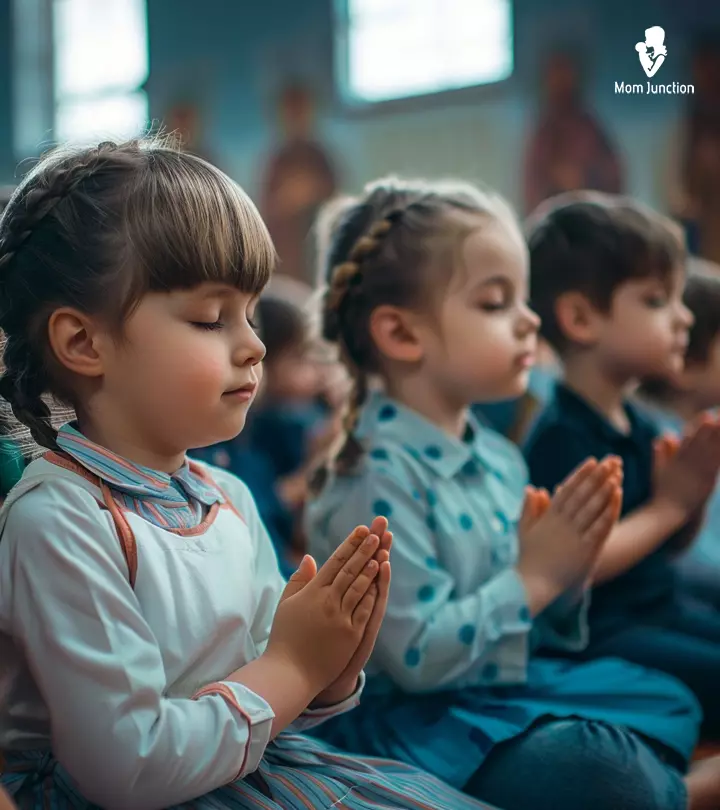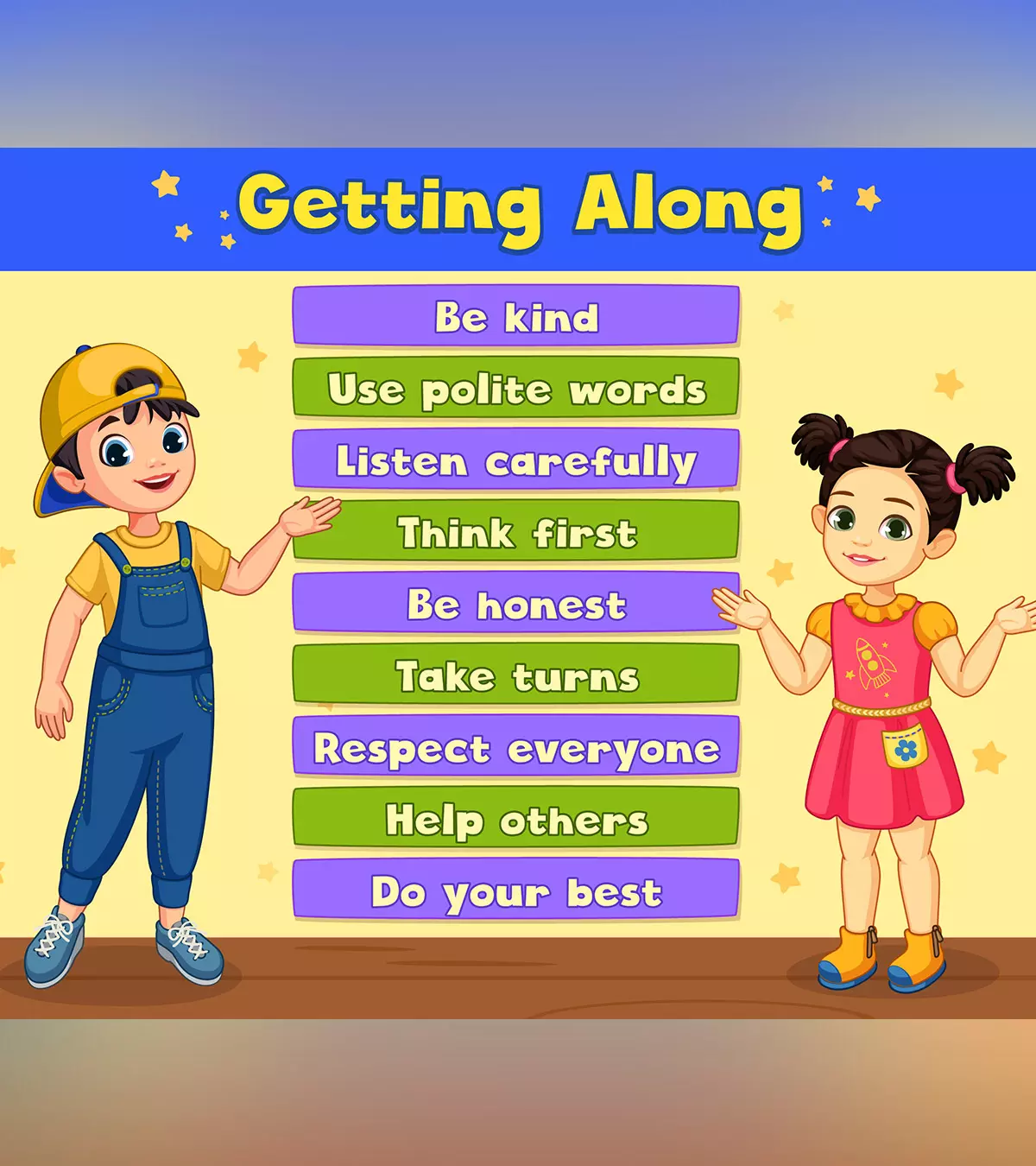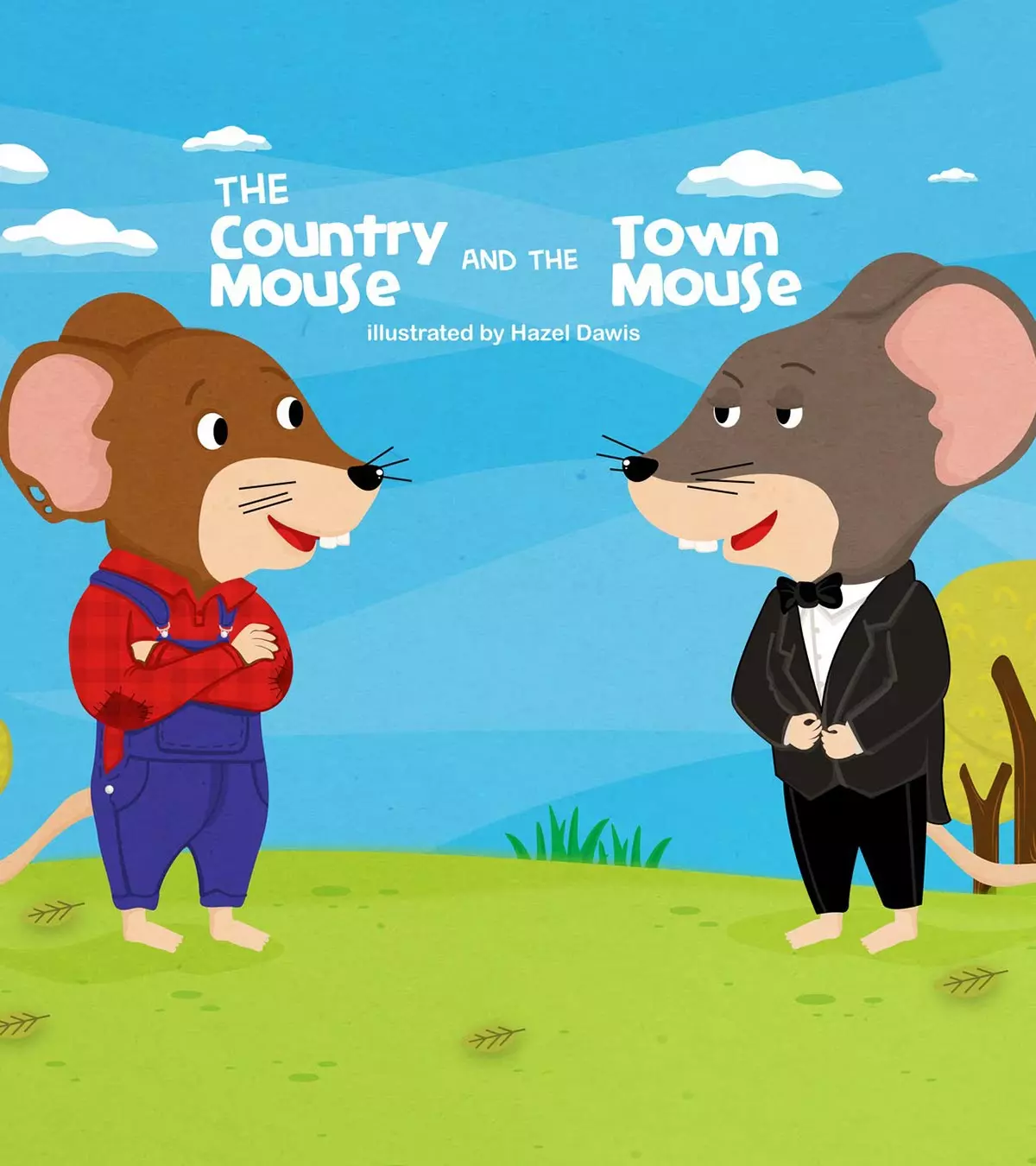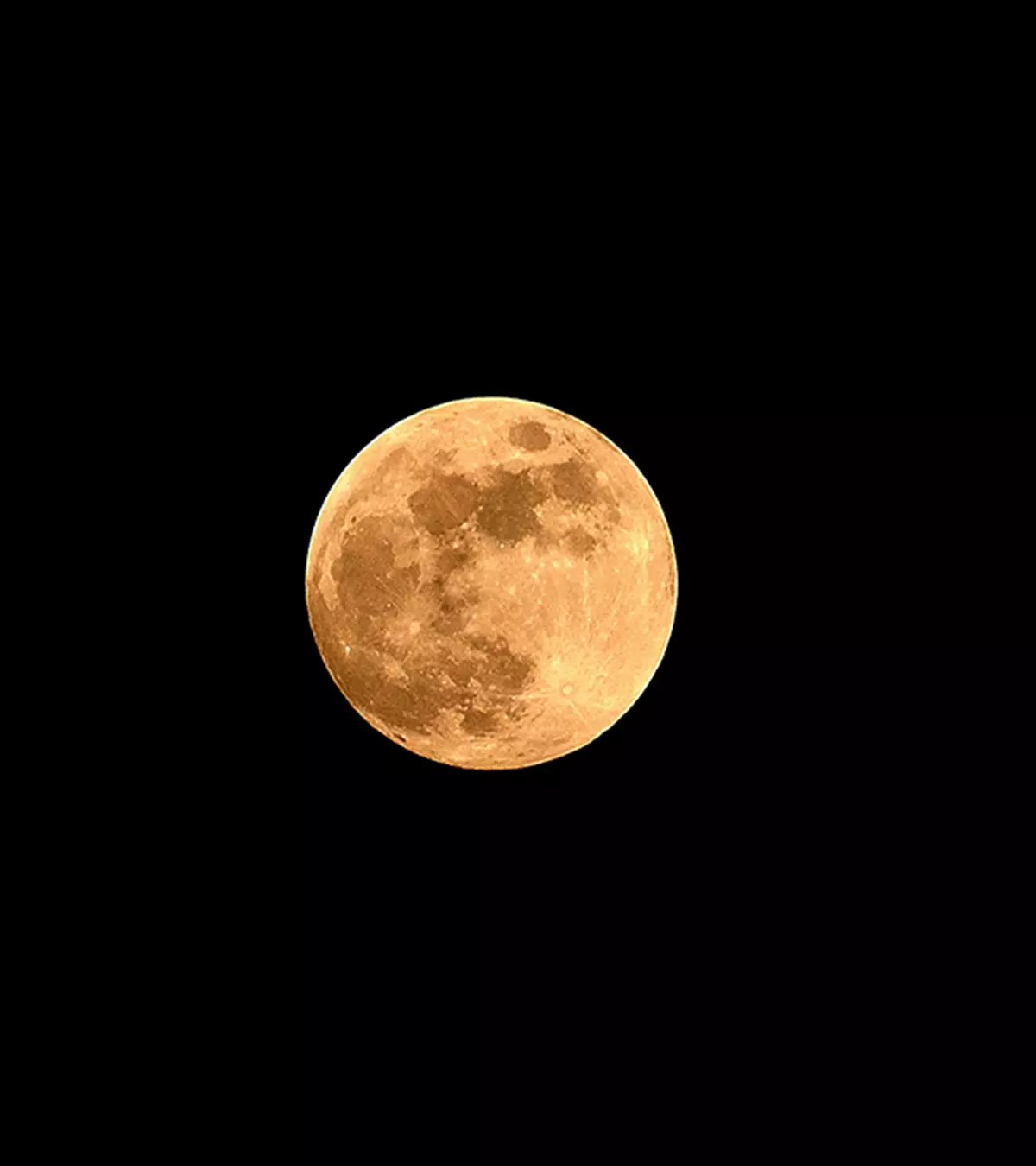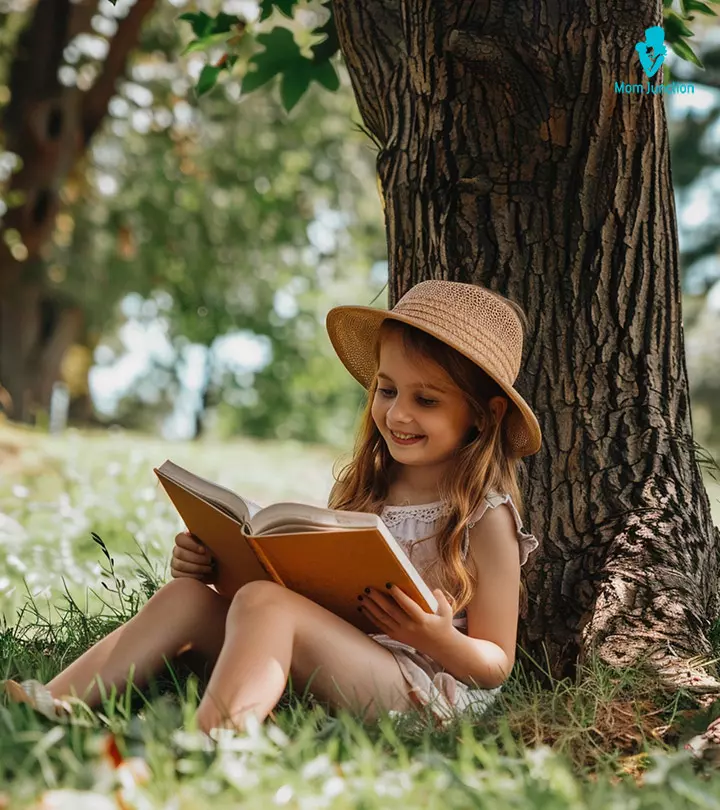
Image: Midjourney/ MomJunction Design Team
Rhymes and poems are one of the first things that children learn. The rhythmic poems are short but contain a deep meaning, and hence help the child learn the language as well as understand the world. Dr. Janette Hughes from the University of Ontario has shown that poetry can significantly boost literacy skills. According to her research, focusing on rhythm and vocabulary helps improve oral language abilities, which are closely linked to better reading skills (1).

Poems and rhymes are a great way to help your child learn the language and also develop their creativity. In fact, due to their universality, children’s poetry is loved by people of all ages. Michael Mortenson, a husband and writer from Utah, shares his love for children’s poetry. He says, “I love children’s literature. Indeed, most of the poems or stories I write could be classified as such. The part that I love the most about children’s lit. is its cheerfulness (i).”
If you are looking for English poems for kids, we have got you covered. Reading poetry can significantly enhance a child’s vocabulary, comprehension skills, and creative thinking abilities. Engaging with rhythmic verses not only makes learning fun but also fosters a love for literature that can last a lifetime. Children love learning rhyming poems. A good poem with meanings helps your child make sense of the world around them. You can also teach your child poems to keep them engaged and develop an interest in learning. In this post, we have come up with some best English poems that your kid would love to recite.
Key Pointers
- Poems are instrumental in keeping children interested in learning and loving literature forever.
- These poems convey important lessons and explore themes related to nature, morality, imagination, and the delightful moments in life.
- Poems help children learn important parts of the language, such as rhyme, rhythm, and alliteration.
- It helps foster creativity and imagination and enhances children’s memory skills.
24 Short English Poems For Children
These short English poems spark the child’s imagination and offer valuable lessons through engaging and rhythmic language.
Famous Poems For Kids
A well-recited poem helps children understand the use of voice, pitch, volume, and expression, which are skills that enhance both speaking and reading abilities (2). Find below popular rhyming poems for kids written by widely known poets.
1. Jabberwocky
Twas brillig, and the slithy toves
Did gyre and gimble in the wabe;
All mimsy were the borogoves,
And the mome raths outgrabe.
“Beware the Jabberwock, my son
The jaws that bite, the claws that catch!
Beware the Jubjub bird, and shun
The frumious Bandersnatch!”
He took his vorpal sword in hand;
Long time the manxome foe he sought—
So rested he by the Tumtum tree,
And stood awhile in thought.
And, as in uffish thought, he stood,
The Jabberwock, with eyes of flame,
Came whiffling through the tulgey wood,
And burbled as it came!
One, two! One, two! And through and through
The vorpal blade went snicker-snack!
He left it dead and with its head
He went galumphing back.
“And hast thou slain the Jabberwock?
Come to my arms, my beamish boy!
frabjous day! Callooh! Callay!”
He chortled in his joy.
‘Twas brillig, and the slithy toves
Did gyre and gimble in the wabe;
All mimsy were the borogoves,
And the mome raths outgrabe.
– Lewis Carroll, poets.org
 Did you know?
Did you know?2. Caterpillar
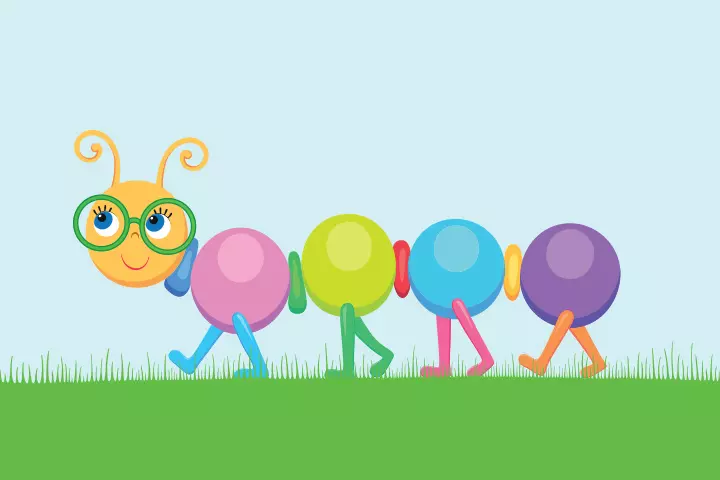
Brown and furry
Caterpillar in a hurry,
Take your walk
To the shady leaf, or stalk,
Or what not,
Which may be the chosen spot.
No toad spy you,
Hovering bird of prey pass by you;
Spin and die,
To live again a butterfly.
– Christina Rossetti, allpoetry.com
3. Dream Variations
To fling my arms wide
In some place of the sun,
To whirl and to dance
Till the white day is done.
Then rest at cool evening
Beneath a tall tree
While night comes on gently,
Dark like me–
That is my dream!
To fling my arms wide
In the face of the sun,
Dance! Whirl! Whirl!
Till the quick day is done.
Rest at pale evening . . .
A tall, slim tree . . .
Night coming tenderly
Black like me.
– Langston Hughes, poemhunter.com
Poems For Inquisitive Kids
Poems spark curiosity and imagination in young minds. Pairing them with activities like Q&A sessions or creative writing boosts engagement. Research shows that Activity-Based Poetry Studies (ABPS) enhance creative writing skills, reading speed, and prosodic reading abilities (3).
4. What’s a Mystery?
Why do keyholes have no keys
Why do fairies have no tales
Can I dial the numbers please
Which is best, boys or girls
What’s a mystery?
If I had another Mum
Would I be another child
If I had another Dad
Where would my old daddy be
What’s a mystery?
Where do grown-ups put the child
That they say that they used to be
Where did my Mummy find my Dad
In the old days was I really
Just a little seed
When you die does it make you sad
What’s a mystery?
How many miles is far away
Why does daddy stop at lights?
Doesn’t daddy know the way
What is left and is it right
What’s a mystery?
When we get to holidays
Will I be asleep
Is Blackpool in London or Japan
Is that baby lamb out there
The same as we had for tea
Why is everybody getting mad
What’s a mystery?
Why do grannies dress in lace
Why must children go to bed
Am I in the human race
Is my mind in my head
What’s a mystery?
Must you still do as you are told
Even if you cry
Why is everybody getting mad
If you pray to Heaven
can you do just what you like
Does He love you even if you’re bad
What’s a mystery?
– Graham Cunningham, best-poems.net
Short Poems For Kids
These short poems in English are perfect for pre and primary school kids because they are short and easy to understand.
5. My Kite

My kite flies high,
I wonder how and why.
With a long tail and wings,
See how my kite swings!
Holding its thread in my hand,
I feel so happy and grand.
– Unknown
6. The Labrador Puppies
I see them now,
They neither moo nor meow.
Hands are small, oh that’s the paw!
Will you look at that tiny little claw.
Now I plod to match the pace,
But they pounce to lick my face,
Oh so adorable, cute, and fluffy,
My dearest buddies, the Labrador puppies!
– Unknown
7. Child Of The Days
Monday’s child is fair of face,
Tuesday’s child is full of grace,
Wednesday’s child is full of woe,
Thursday’s child has far to go.
Friday’s child is loving and giving,
Saturday’s child works hard for a living,
Sunday’s child is fun and entertaining.
All the days have a child that’s amusing.
– Unknown
Animal Poems For Kids
These are funny poems about animals for kids, with a touch of cuteness.
8. Rabbit
A rabbit
Bit
A little bit
An itty-bitty
Little bit of beet
Then bit
By bit
He bit
Because he liked the taste of it
– Mary Ann Hoberman, themercadoproject.com
9. About the Teeth of Sharks
The thing about a shark is—teeth,
One row above, one row beneath.
Now take a close look. Do you find
It has another row behind?
Still closer—here, I’ll hold your hat:
Has it a third row behind that?
Now look in and…Look out! Oh my,
I’ll never know now! Well, goodbye.
– John Ciardi, poetryfoundation.org
10. First Grade
In the play Amy didn’t want to be
anybody; so she managed the curtain.
Sharon wanted to be Amy. But Sam
wouldn’t let anybody be anybody else.
He said it was wrong. “All right,” Steve said,
“I’ll be me but I don’t like it.”
So Amy was Amy, and we didn’t have the play.
And Sharon cried.
– William Stafford, poetrysociety.org
11. At the Zoo
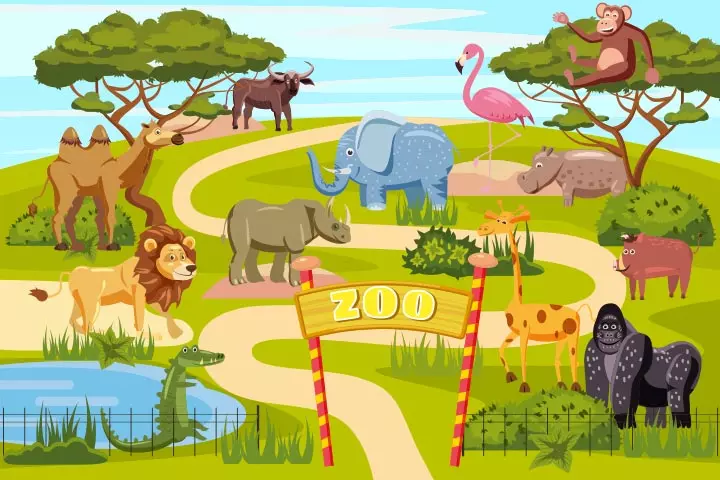
First I saw the white bear, then I saw the black;
Then I saw the camel with a hump upon his back;
Then I saw the grey wolf, with mutton in his maw;
Then I saw the wombat waddle in the straw;
Then I saw the elephant a-waving of his trunk;
Then I saw the monkeys—mercy, how unpleasantly they smelt!
– William Makepeace Thackeray, poets.org
Nature Poems For Kids
These poems are about natural beauty and the lovely earth.
12. Clouds
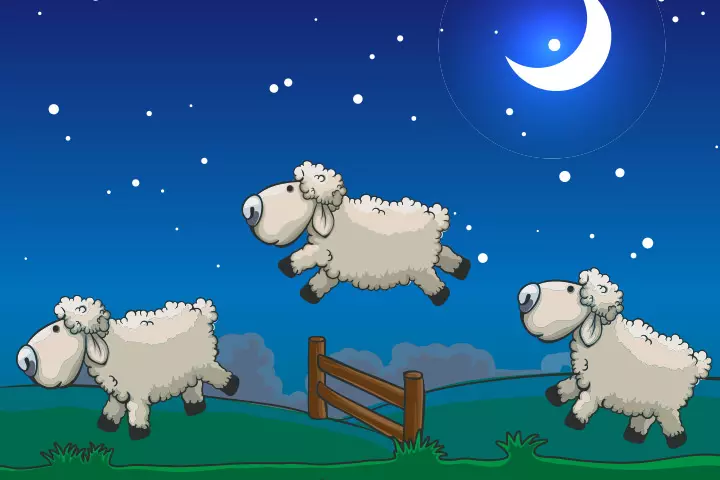
White sheep, white sheep,
On a blue hill,
When the wind stops,
You all stand still.
When the wind blows,
You walk away slow.
White sheep, white sheep,
Where do you go?
– Christina Rosetti, rainydaypoems.com
13. Rain
The rain is raining all around,
It falls on field and tree,
It rains on the umbrellas here,
And on the ships at sea.
– Robert Louis Stevenson, littleschoolhouseinthesuburbs.com
14. Trees
I think that I shall never see
A poem lovely as a tree.
A tree whose hungry mouth is prest
Against the sweet earth’s flowing breast;
A tree that looks at God all day,
And lifts her leafy arms to pray;
A tree that may in summer wear
A nest of robins in her hair;
Upon whose bosom snow has lain;
Who intimately lives with rain.
Poems are made by fools like me,
But only God can make a tree.
– Joyce Kilmer, poemanalysis.com
15. By the Stream
By the stream I dream in calm delight, and watch as in a glass,
How the clouds like crowds of snowy-hued and white-robed maidens pass,
And the water into ripples breaks and sparkles as it spreads,
Like a host of armored knights with silver helmets on their heads.
And I deem the stream an emblem fit of human life may go,
For I find a mind may sparkle much and yet but shallows show,
And a soul may glow with myriad lights and wondrous mysteries,
When it only lies a dormant thing and mirrors what it sees.
– Paul Laurence Dunbar, allpoetry.com
 Did you know?
Did you know?16. Putting in the Seed
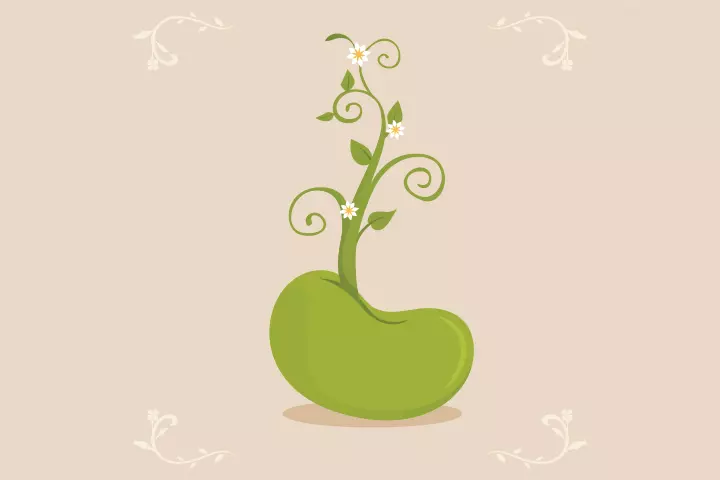
You come to fetch me from my work to-night
When supper’s on the table, and we’ll see
If I can leave off burying the white
Soft petals fallen from the apple tree.
(Soft petals, yes, but not so barren quite,
Mingled with these, smooth bean and wrinkled pea;)
And go along with you ere you lose sight
Of what you came for and become like me,
Slave to a springtime passion for the earth.
How Love burns through the Putting in the Seed
On through the watching for that early birth
When, just as the soil tarnishes with weed,
The sturdy seedling with arched body comes
Shouldering its way and shedding the earth crumbs.
– Robert Frost, writingandhealing.org
17. To make a prairie
To make a prairie it takes a clover and one bee,
One clover, and a bee.
And revery.
The revery alone will do,
If bees are few.
– Emily Dickinson, emilydickinsonmuseum.org
18. Patience Taught by Nature
“O Dreary life!” we cry, “O dreary life!”
And still the generations of the birds
Sing through our sighing, and the flocks and herds
Serenely live while we are keeping strife
With Heaven’s true purpose in us, as a knife
Against which we may struggle. Ocean girds
Unslackened the dry land: savannah-swards
Unweary sweep: hills watch, unworn; and rife
Meek leaves drop yearly from the forest trees,
To show, above, the unwasted stars that pass
In their old glory. O thou God of old!
Grant me some smaller grace than comes to these;—
But so much patience, as a blade of grass
Grows by contented through the heat and cold.
– Elizabeth Barrett Browning, simple-poetry.com
19. Song
When we came home across the hill
No leaves were fallen from the trees;
The gentle fingers of the breeze
Had torn no quivering cobweb down.
The hedgerow bloomed with flowers still,
No withered petals lay beneath;
But the wild roses in your wreath
Were faded, and the leaves were brown.
– T. S. Eliot, poets.org
20. Deep in the Quiet Wood
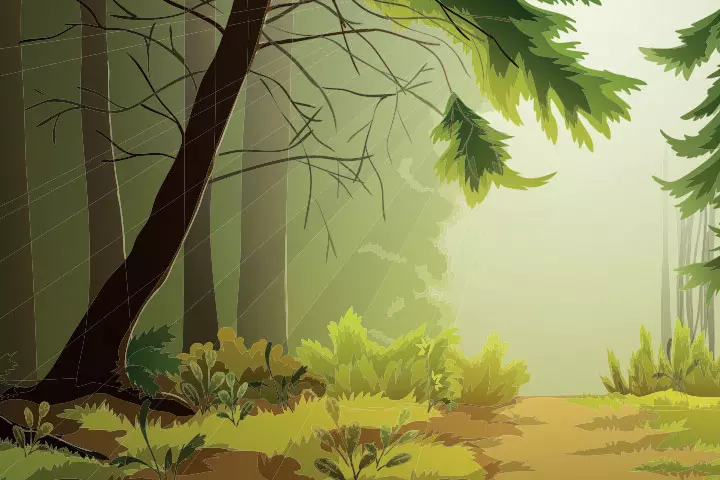
Are you bowed down in heart?
Do you but hear the clashing discords and the din of life?
Then come away, come to the peaceful wood,
Here bathe your soul in silence. Listen! Now,
From out the palpitating solitude
Do you not catch, yet faint, elusive strains?
They are above, around, within you, everywhere.
Silently listen! Clear, and still more clear, they come.
They bubble up in rippling notes and swell in singing tones.
Now let your soul run the whole gamut of the wondrous scale
Until, responsive to the tonic chord,
It touches the diapason of God’s grand cathedral organ,
Filling earth for you with heavenly peace
And holy harmonies.
– James Weldon Johnson, poemotopia.com
21. On the Grasshopper and Cricket
The poetry of earth is never dead:
When all the birds are faint with the hot sun,
And hide in cooling trees, a voice will run
From hedge to hedge about the new-mown mead;
That is the Grasshopper’s—he takes the lead
In summer luxury,—he has never done
With his delights; for when tired out with fun
He rests at ease beneath some pleasant weed.
The poetry of earth is ceasing never:
On a lone winter evening, when the frost
Has wrought a silence, from the stove there shrills
The Cricket’s song, in warmth, increasing ever,
And seems to one in drowsiness half lost,
The Grasshopper’s among some grassy hills.
– John Keats, poemanalysis.com
22. I Hear You Call, Pine Tree
I hear you call, pine tree, I hear you upon the hill, by the silent pond where the lotus flowers bloom, I hear you call, pine tree.
What is it you call, pine tree, when the rain falls, when the winds blow, and when the stars appear, what is it you call, pine tree?
I hear you call, pine tree, but I am blind, and do not know how to reach you, pine tree. Who will take me to you, pine tree?
– Yone Noguchi, wheretheleavesfall.com
23. Flower
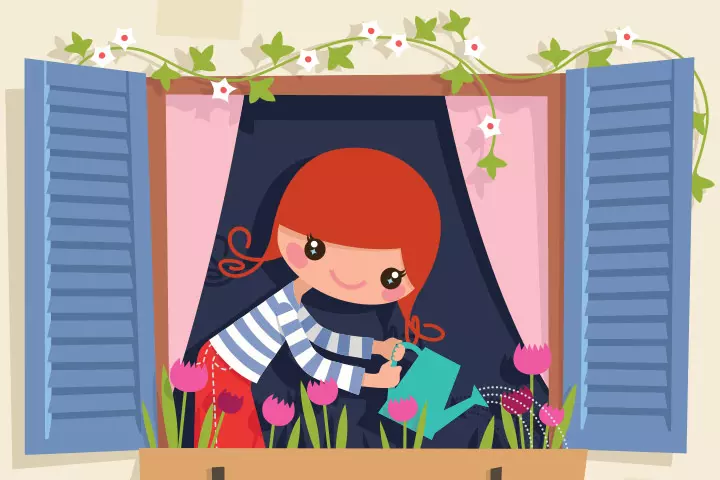
Pluck this little flower and take it, delay not! I fear lest it
droop and drop into the dust.
I may not find a place in thy garland, but honour it with a touch of
pain from thy hand and pluck it. I fear lest the day end before I am
aware, and the time of offering go by.
Though its color be not deep and its smell be faint, use this flower
in thy service and pluck it while there is time.
– Rabindranath Tagore, spillwords.com
 Did you know?
Did you know?24. The Brook
I come from haunts of coot and hern,
I make a sudden sally
And sparkle out among the fern,
To bicker down a valley.
By thirty hills I hurry down,
Or slip between the ridges,
By twenty thorpes, a little town,
And half a hundred bridges.
Till last by Philip’s farm I flow
To join the brimming river,
For men may come and men may go,
But I go on for ever.
I chatter over stony ways,
In little sharps and trebles,
I bubble into eddying bays,
I babble on the pebbles.
With many a curve my banks I fret
By many a field and fallow,
And many a fairy foreland set
With willow-weed and mallow.
I chatter, chatter, as I flow
To join the brimming river,
For men may come and men may go,
But I go on for ever.
I wind about, and in and out,
With here a blossom sailing,
And here and there a lusty trout,
And here and there a grayling,
And here and there a foamy flake
Upon me, as I travel
With many a silvery waterbreak
Above the golden gravel,
And draw them all along, and flow
To join the brimming river
For men may come and men may go,
But I go on for ever.
I steal by lawns and grassy plots,
I slide by hazel covers;
I move the sweet forget-me-nots
That grow for happy lovers.
I slip, I slide, I gloom, I glance,
Among my skimming swallows;
I make the netted sunbeam dance
Against my sandy shallows.
I murmur under moon and stars
In brambly wildernesses;
I linger by my shingly bars;
I loiter round my cresses;
And out again I curve and flow
To join the brimming river,
For men may come and men may go,
But I go on forever.
– Alfred Lord Tennyson, v2melody.com
Tips For Teaching Poetry To Kids
Learning poetry can be a fun and enriching experience for children, helping them develop language skills and creativity. Here are some practical tips to make poetry more enjoyable and effective for young learners (4):
- Have children recite poems aloud to build confidence and improve their pronunciation.
- Discuss the meanings and themes of the poems to deepen understanding.
- Use arts and crafts to illustrate poems, making learning more engaging.
- Incorporate music by turning poems into songs.
- Introduce different types of poems, such as haikus or limericks, to expose kids to various forms and styles.
- Integrate poems into daily routines or themed activities to make poetry a regular and anticipated part of learning.
Frequently Asked Questions
1. What themes does Rossetti explore in her poems for children?
Rossetti lived in the nineteenth century, the influence of which is seen in the themes in her poems. Some of the most renowned themes that Rossetti explores in her poems for children include those about nature, sensory adaptation, morality, religiousness or spirituality, fantasy, and the simple pleasures of childhood.
2. What are some of the lessons that children can learn from reading Carroll’s poems?
Some lessons children can learn from reading Carroll’s poems are that the world is full of possibilities that can open the door to successful adventures for someone with a curious and creative mind. In addition, the lightheartedness and moralism in his poems teach children the value of goals, integrity, kindness, time, playfulness, and imagination.
3. What is the role of imagination in Carroll’s poetry for children?
Carroll’s poetry focuses on creating a fantasy world in the child’s mind through wordplay. He uses whimsical words such as frabjous, Jubjub bird, vorpal, Bandersnatch, and jabberwocky, that sound poetic and magical invoking feelings of joy within a child as they dream of such mystic beings.
Introducing educational and interactive English poems for kids could make them interested in the language and enhance their learning, storytelling, and creative skills. Poems of various genres help children learn better about the world around them and the significance of putting words in a meaningful manner. Children might love an age-appropriate and intriguing poem to learn and recite. Moreover, alliteration poems for kids on animals and nature are a hit across the childhood ages. You may also encourage your child to pen down their thoughts in a small poem in English and keep practicing to bring out their creative sides.
Illustration: Short English Poems For Kids - Class 1 to 7th
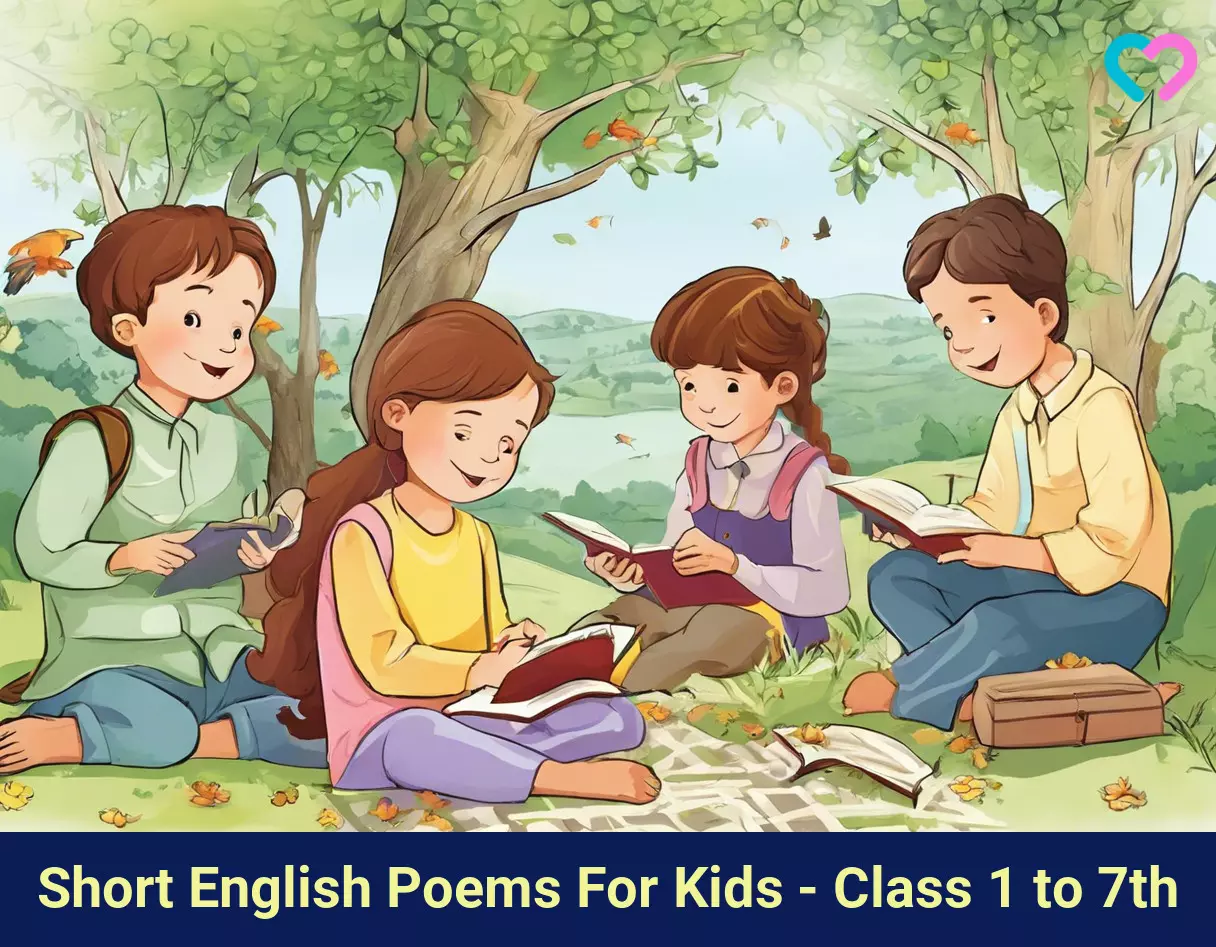
Image: Stable Diffusion/MomJunction Design Team
Teach children not only to read poems but also to recite them gracefully. Watch the poem ‘Trees’ come alive with choreography. Let your child also try to recite a poem with beautiful expressions and hand gestures.
Personal Experience: Source
MomJunction articles include first-hand experiences to provide you with better insights through real-life narratives. Here are the sources of personal accounts referenced in this article.
i. The Jabberwocky and the art of nonsense poetry;https://smilesinthesky.wordpress.com/2012/08/28/the-jabberwocky-and-the-art-of-nonsense-poetry/
References
- Dr. Janette Hughes; (2007); Poetry: A Powerful Medium for Literacyand Technology Development.
https://www.researchgate.net/publication/239603797_Poetry_A_Powerful_Medium_for_Literacy_and_Technology_Development - How poetry can help kids develop reading skills.
https://readingpartners.org/blog/poetry-can-help-kids-develop-reading-skills/ - Mehmet Razgatlıoğlu; (2025); The Effect of Activity-Based Poetry Studies on Reading Fluency and Creative Writing Skills.
https://ijpe.inased.org/files/2/manuscript/manuscript_3057/ijpe-3057-manuscript-005421.pdf - R. Kannan; (2019); Techniques Involved in the Soft Skills of Literature.
https://www.ijrte.org/wp-content/uploads/papers/v8i4s4/D10051284S419.pdf
Community Experiences
Join the conversation and become a part of our nurturing community! Share your stories, experiences, and insights to connect with fellow parents.
Read full bio of Elisabeth Daly
Read full bio of Wedetso Chirhah
Read full bio of Harshita Makvana
Read full bio of Reshmi Das






